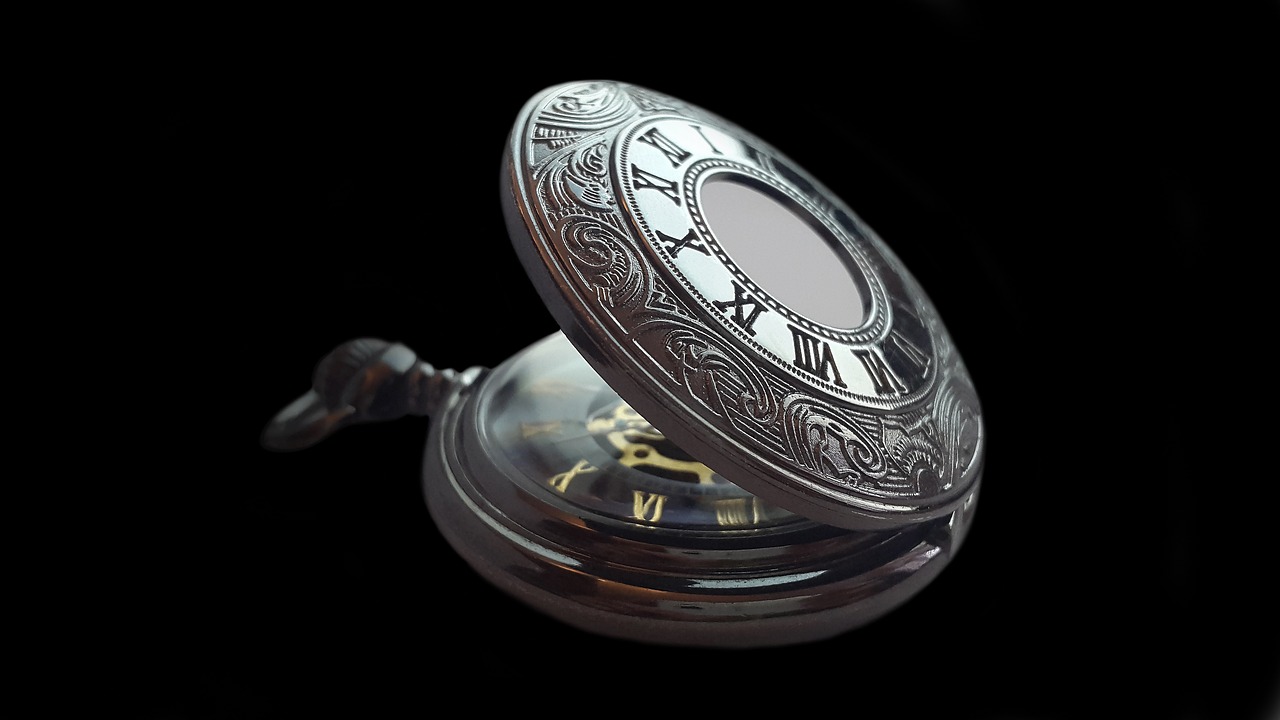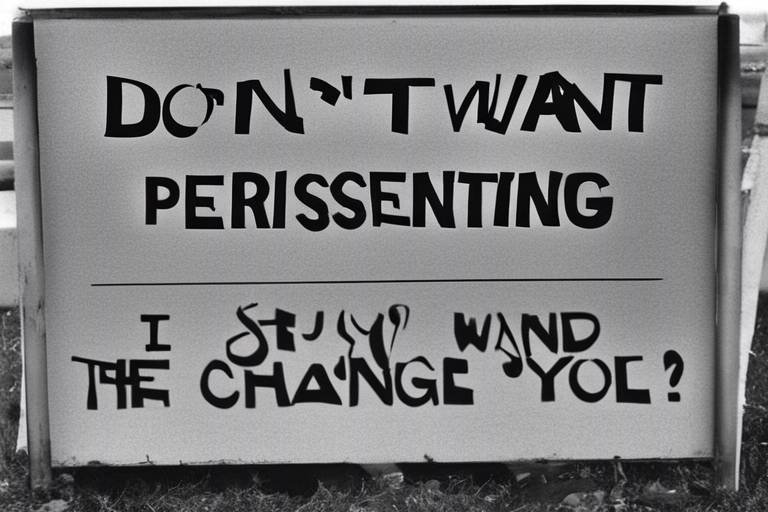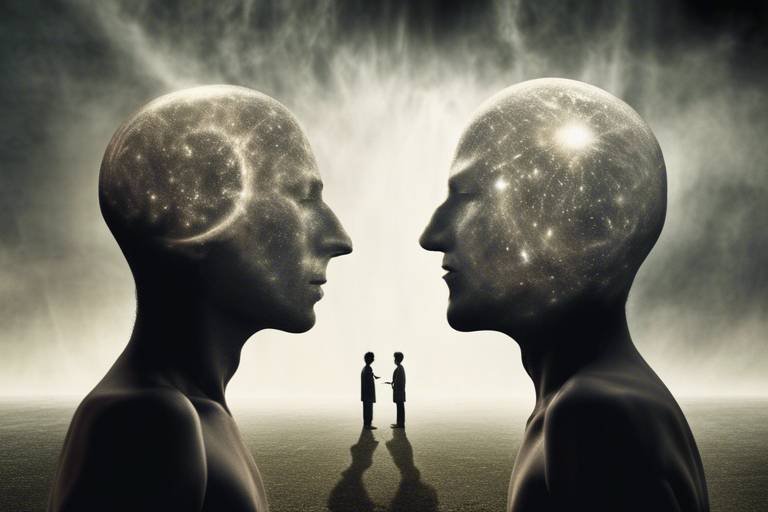Is Time Travel Possible? A Metaphysical Enquiry
Time travel has long captivated the human imagination, sparking countless stories, movies, and debates. The idea of slipping through the fabric of time, visiting ancient civilizations, or peering into the future is both thrilling and perplexing. But is it really possible? In this article, we will explore the concept of time travel from various angles, including scientific theories, philosophical implications, and the cultural impact it has had on society. By delving into these areas, we aim to unravel the mysteries surrounding time travel and its potential reality.
To begin our exploration, we must first look at the scientific theories that lay the groundwork for the possibility of time travel. One of the most significant contributions comes from Albert Einstein's theory of relativity, which fundamentally changed our understanding of time and space. According to this theory, time is not a constant; it can be affected by speed and gravity. For instance, the faster an object moves, the slower time passes for it relative to a stationary observer. This phenomenon, known as time dilation, opens the door to the idea that traveling at near-light speeds could allow for a form of time travel.
Moreover, the concept of wormholes, which are theoretical passages through space-time, presents another potential method for time travel. Imagine a tunnel connecting two distant points in time and space, allowing one to traverse vast distances or leap into the past or future. While wormholes remain speculative and unproven, they serve as a fascinating framework for understanding how time travel might be achievable.
As we dive deeper into the implications of time travel, we encounter profound philosophical questions. What does it mean for our understanding of free will and determinism? If we could travel back in time, could we change events, or are we merely observers in a predetermined timeline? These questions challenge our perceptions of reality, forcing us to confront the nature of time itself.
One of the most famous paradoxes associated with time travel is the grandfather paradox. This thought experiment poses a scenario where a time traveler goes back in time and inadvertently prevents their grandfather from meeting their grandmother, thereby preventing their own birth. This raises critical questions about causality and the consistency of timelines. If such contradictions exist, can time travel truly be feasible?
Various theories have been proposed to resolve these paradoxes. One intriguing solution is the concept of branching timelines, which suggests that every time a time traveler makes a change in the past, they create an alternate reality. This means that instead of altering their original timeline, they would simply be creating a new one, thereby avoiding paradoxes altogether.
Building upon the idea of branching timelines, multiverse theory posits that there are infinite parallel universes, each with its own unique timeline. If time travel were possible, it could lead to the creation of these alternate universes, allowing for multiple outcomes and realities. This radical notion fundamentally alters our understanding of time and existence, suggesting that every decision we make could spawn a new universe.
Time travel has also made a significant impact on popular culture. From classic literature to blockbuster films, the portrayal of time travel has influenced public perception and sparked interest in the scientific and philosophical discussions surrounding the topic. Works like H.G. Wells' "The Time Machine" and films like "Back to the Future" have not only entertained but also ignited curiosity about the nature of time.
In recent years, advancements in technology, particularly in the fields of quantum mechanics and theoretical physics, have opened new avenues for exploring the possibility of time travel. Researchers are investigating the quantum realm, where the laws of physics behave in ways that challenge our classical understanding of time. Could these advancements eventually lead us to unlock the mysteries of time travel?
Quantum mechanics introduces concepts that defy traditional notions of time. For instance, the idea of superposition suggests that particles can exist in multiple states simultaneously until observed. This concept could offer a framework for understanding how time travel might work, as it implies that time itself may not be as linear as we perceive it to be.
As we speculate about the future of time travel, it’s essential to consider ongoing research and technological innovations. Scientists are continually pushing the boundaries of what is scientifically possible, and the dream of time travel may not be as far-fetched as it once seemed. Imagine a world where we could revisit historical events or explore the future—how would that change our understanding of history and existence?
- Can time travel ever be possible? While theories suggest it might be feasible, practical time travel remains a topic of speculation.
- What are the main theories surrounding time travel? Key theories include Einstein's relativity, wormholes, and multiverse theory.
- How does time travel affect free will? It raises questions about causality and whether we can change past events.
- What are some popular examples of time travel in media? "The Time Machine" and "Back to the Future" are notable examples.

The Science of Time Travel
The concept of time travel has fascinated humanity for centuries, igniting imaginations and inspiring countless stories, theories, and debates. At its core, time travel is not just a whimsical idea; it finds its roots in the realms of science and theoretical physics. One of the most significant breakthroughs in our understanding of time and space came from the brilliant mind of Albert Einstein. His theory of relativity, particularly the concept of spacetime, provides a framework that suggests time is not a constant but rather a flexible dimension that can be manipulated under certain conditions.
Einstein's theory posits that as you approach the speed of light, time itself slows down. This phenomenon, known as time dilation, has been observed in experiments with particles traveling at high speeds and even in precise measurements involving atomic clocks on fast-moving jets. Imagine a twin who travels to space at near-light speed; upon returning, they would be younger than their Earth-bound sibling. This mind-bending reality raises the question: if time can be stretched and compressed, could we ever find a way to travel through it?
Another intriguing aspect of time travel is the concept of wormholes. These theoretical passages through spacetime could create shortcuts between distant points in the universe. Picture a piece of paper with two dots representing two locations. If you fold the paper so the dots touch, you can travel from one to the other without traversing the space in between. While wormholes remain speculative, they are grounded in the equations of general relativity, offering a tantalizing glimpse into the possibilities of time travel.
However, the scientific community remains cautious. While theories abound, practical applications are still light-years away. The energy required to create or sustain a wormhole, for example, is beyond our current technological capabilities. Additionally, the stability of such structures poses significant challenges. Theoretical physicists are actively exploring these ideas, but the road to time travel is fraught with complexities and paradoxes that challenge our understanding of the universe.
To summarize the scientific foundations of time travel, we can look at the following key theories:
| Theory | Description |
|---|---|
| Special Relativity | Introduces time dilation and suggests that time is relative and can be affected by speed. |
| General Relativity | Describes gravity as the curvature of spacetime, allowing for the possibility of wormholes. |
| Quantum Mechanics | Challenges classical notions of time and introduces concepts that could be key to understanding time travel. |
In conclusion, while the science of time travel is still in its infancy, the theories presented by Einstein and advancements in quantum mechanics provide a fascinating foundation. As we continue to unravel the mysteries of the universe, who knows what we might discover? Could time travel one day transition from the realm of science fiction to a tangible reality? Only time will tell.

Philosophical Implications
When we plunge into the depths of time travel, we inevitably stumble upon a treasure trove of that challenge the very essence of our understanding of reality. Imagine for a moment that you could hop into a time machine and visit your past self. What would that mean for the concept of free will? Are our choices truly ours if there’s a possibility that our future selves can influence our past decisions? This opens a Pandora's box of questions regarding determinism and the nature of time itself.
One of the most profound questions time travel poses is whether we are mere puppets of fate or if we wield the strings of our destiny. Determinism suggests that every event is predetermined by preceding events, while the idea of free will implies that we can make choices independent of past influences. If time travel is possible, could it mean that our timeline is not a single, linear path but rather a complex tapestry of intertwined possibilities? This leads us to ponder if the future is set in stone or if it can be rewritten with each temporal journey.
Moreover, the concept of time itself becomes a philosophical conundrum. Traditionally, we perceive time as a linear progression—past, present, and future. However, if we could traverse these dimensions, would time still hold the same meaning? Some philosophers argue that time is merely an illusion, a construct of human perception, while others maintain that it is a fundamental aspect of the universe. This debate is reminiscent of the age-old question: if a tree falls in a forest and no one is there to hear it, does it make a sound? In the realm of time travel, we might ask: if we change the past, does the original timeline still exist?
Time travel also introduces a series of paradoxes that further complicate these philosophical inquiries. The most famous of these is the grandfather paradox. Picture this: you travel back in time and accidentally prevent your grandfather from meeting your grandmother. If that happens, you would never be born, which raises the question: if you were never born, how could you have traveled back in time in the first place? This paradox challenges our understanding of causality and the consistency of timelines, forcing us to reconsider the very fabric of reality itself.
Several theories have been proposed to resolve these paradoxes, suggesting that time travel might not be as straightforward as it seems. One intriguing theory is the idea of branching timelines. According to this concept, every time a time traveler alters a past event, a new timeline branches off from the original. This means that you could theoretically prevent your grandfather from meeting your grandmother, but in doing so, you create a separate timeline where you never exist, while the original timeline remains unchanged. This idea not only offers a potential solution to the grandfather paradox but also expands our understanding of reality to include multiple, coexisting timelines.
Speaking of multiple timelines, we can’t overlook the fascinating implications of multiverse theory. This theory posits that every possible outcome of every event creates a new universe. So, if you were to travel back in time and change something significant, you wouldn’t just alter your original timeline; you would create an entirely new universe where that change exists. This perspective fundamentally alters our understanding of time and existence, suggesting that every decision we make spawns a new reality. Imagine living in a world where every choice creates a new universe—how mind-boggling is that?
In conclusion, the philosophical implications of time travel stretch far beyond mere science fiction. They force us to confront profound questions about free will, determinism, and the nature of time itself. As we continue to explore these ideas, we may find ourselves not only redefining our understanding of time but also our place in the universe.
- What is time travel? Time travel refers to the concept of moving between different points in time, similar to how we move through space.
- Is time travel scientifically possible? While there are theories in physics, such as Einstein's theory of relativity, that suggest time travel could be possible, it remains a theoretical concept and has not been achieved.
- What are the philosophical implications of time travel? Time travel raises questions about free will, determinism, and the nature of time, challenging our understanding of reality.
- What is the grandfather paradox? The grandfather paradox is a hypothetical scenario where a time traveler prevents their grandfather from meeting their grandmother, leading to the question of how they could exist to travel back in time in the first place.

Paradoxes of Time Travel
Time travel isn't just a thrilling concept found in science fiction; it comes with a host of perplexing paradoxes that challenge our understanding of reality itself. One of the most famous of these is the grandfather paradox, which raises a mind-boggling question: what happens if you travel back in time and inadvertently prevent your grandfather from meeting your grandmother? If that were to happen, you would never be born, which means you couldn't have traveled back in time in the first place. This contradiction highlights the intricacies of causality and how our actions might ripple through time in ways we can't fully comprehend.
Another fascinating paradox is the bootstrap paradox, where an object or piece of information exists without ever being created. Imagine you travel back in time and give Shakespeare a copy of his own works. If he uses it to write those plays, then where did the original copy come from? This circle of causation raises profound questions about the nature of time and existence, suggesting that our understanding of linear progression may be fundamentally flawed.
These paradoxes force us to confront the limitations of our current theories about time and reality. They challenge us to consider whether time is a straight line or a complex web of interconnected events. Some theorists suggest that time is not a rigid structure but instead a fluid, dynamic entity that can be manipulated under certain conditions. This leads to intriguing possibilities about how time travel might function, potentially allowing for multiple timelines or alternate realities.
To explore these ideas further, let’s consider the implications of time travel on a broader scale. If time travel were possible, it might not only affect individual lives but could also alter the course of history. Imagine a time traveler influencing significant events, like the signing of the Declaration of Independence or the invention of the wheel. The ripple effects of such changes could create entirely new timelines, each with its own set of realities and outcomes.
In light of these paradoxes, various theories have emerged to offer potential solutions. Some suggest that time travel could operate through branching timelines, where every action creates a new timeline rather than altering the existing one. Others propose the existence of a multiverse, where each decision spawns a separate universe, allowing for infinite possibilities and outcomes. These theories not only provide a framework for understanding time travel but also expand our perception of existence itself.
As we delve deeper into the mysteries of time travel, we must grapple with these paradoxes and their implications. They serve as a reminder that our understanding of time is still evolving and that the future may hold answers that we can't yet imagine. The exploration of these concepts not only captivates our imagination but also encourages us to question the very fabric of reality.
- What is the grandfather paradox? The grandfather paradox is a hypothetical situation where a time traveler goes back in time and prevents their grandfather from meeting their grandmother, raising questions about causality and existence.
- What is the bootstrap paradox? The bootstrap paradox occurs when an object or piece of information exists without a clear origin, leading to a circular causation that challenges our understanding of time.
- How do branching timelines work? Branching timelines suggest that every action taken during time travel creates a new timeline rather than altering the original, allowing for multiple outcomes and realities.
- What is multiverse theory? Multiverse theory posits that there are multiple, possibly infinite, universes that exist simultaneously, each representing different outcomes based on various decisions and actions.

Resolving Paradoxes
Time travel is a fascinating concept, but with it comes a plethora of paradoxes that challenge our understanding of causality and existence. One of the most famous is the grandfather paradox, where a time traveler goes back and inadvertently prevents their grandfather from meeting their grandmother, thus erasing their own existence. This scenario raises a fundamental question: if the time traveler never existed, how could they have traveled back in time in the first place?
To tackle these perplexing issues, various theories have emerged that attempt to resolve the contradictions inherent in time travel. One popular solution is the concept of branching timelines. According to this theory, every time a time traveler makes a change in the past, they create a new timeline that branches off from the original. This means that the time traveler would still exist in their original timeline, while a new reality unfolds in the altered timeline. Imagine it like a tree, where each choice creates a new branch, leading to different outcomes without disrupting the original flow.
Another intriguing solution is the idea of alternate realities. This posits that every decision creates a new universe, allowing all possible outcomes to coexist simultaneously. For instance, if you were to travel back and stop your grandfather from meeting your grandmother, you wouldn't erase your own existence; instead, you would create a new universe where you never existed, while the original universe continues on its course. This concept aligns with the multiverse theory, suggesting that every action taken in the past generates a parallel universe with its own unique timeline.
To illustrate these concepts, consider the following table that summarizes the key theories regarding time travel paradoxes:
| Theory | Description |
|---|---|
| Branching Timelines | Each change creates a new timeline, leaving the original intact. |
| Alternate Realities | Every decision leads to a new universe, allowing all outcomes to exist. |
| Self-Consistency Principle | Events must occur in a way that maintains the timeline's consistency. |
Lastly, the self-consistency principle offers another perspective, suggesting that any actions taken by a time traveler were always part of history. In this view, the timeline is fixed, and any attempt to change the past will only lead to events that ensure the timeline remains unchanged. This principle emphasizes a deterministic approach to time travel, where the future and past are intertwined in a consistent loop.
In conclusion, while time travel may seem like a whimsical notion confined to science fiction, the philosophical and scientific discussions surrounding it are profound and complex. Each theory offers a unique lens through which to view the nature of time, causality, and existence. As we delve deeper into these concepts, we inch closer to understanding the very fabric of reality itself.
- What is the grandfather paradox? The grandfather paradox is a hypothetical scenario in time travel where a person travels back in time and prevents their grandfather from meeting their grandmother, leading to the question of how they could exist to make that trip.
- What are branching timelines? Branching timelines suggest that every change made in the past creates a new timeline, allowing different outcomes to exist simultaneously without altering the original timeline.
- How does multiverse theory relate to time travel? Multiverse theory posits that every decision creates a new universe, which means that time travel could result in alternate realities where different events unfold.

The Role of Multiverse Theory
The concept of multiverse theory adds a fascinating layer to our understanding of time travel. Imagine a vast ocean, where each wave represents a different universe, each with its own unique set of circumstances and outcomes. In this analogy, time travel is akin to diving into one of those waves, allowing you to explore alternate realities and timelines. The multiverse theory posits that every decision we make spawns a new universe, creating a tapestry of infinite possibilities. This means that when we think about time travel, we might not just be altering our past; we could be creating entirely new timelines that exist parallel to our own.
At its core, multiverse theory suggests that time is not linear but rather a complex web of interconnected realities. This shifts our perspective on causality and the consequences of our actions. For instance, if a time traveler were to go back and change a significant event, instead of simply altering their original timeline, they might create a new branch in the multiverse. This idea is both thrilling and terrifying, as it challenges our notions of fate and free will. Are we the masters of our destinies, or are we merely players in an infinite game of chance?
To better illustrate how multiverse theory intersects with time travel, consider the following table:
| Scenario | Original Timeline | Alternate Timeline |
|---|---|---|
| Time Traveler Prevents an Event | Event occurs, leading to specific outcomes | Event never occurs, creating new outcomes |
| Time Traveler Affects a Character | Character's life unfolds as originally intended | Character's life changes dramatically |
| Time Traveler Returns to Present | Original timeline remains intact | New timeline exists alongside the original |
This framework allows for a more nuanced understanding of how time travel could function without leading to paradoxes. Instead of a singular timeline where events must remain consistent, the multiverse opens the door to a plethora of outcomes, each valid in its own right. This means that time travel could be less about rewriting history and more about exploring the vast potential of what could have been.
Moreover, the implications of multiverse theory extend beyond time travel. It invites us to consider the nature of reality itself. If every choice creates a new universe, then our understanding of existence becomes a matter of perspective. What if our current reality is just one of many? This thought experiment can be both liberating and daunting, as it forces us to confront the complexity of our choices and their far-reaching effects.
In conclusion, multiverse theory not only enriches the narrative of time travel but also challenges our perceptions of reality, choice, and existence. As we delve deeper into the mysteries of the universe, we may find that the answers we seek are not just about traveling through time, but about understanding the myriad of worlds that exist alongside our own.
- What is multiverse theory? Multiverse theory suggests that there are multiple, perhaps infinite, universes that exist parallel to our own, each with different outcomes based on varying choices.
- How does multiverse theory relate to time travel? It implies that time travel could create alternate realities, allowing for different outcomes without disrupting the original timeline.
- Are there any scientific foundations for multiverse theory? While still largely theoretical, concepts in quantum physics and cosmology provide some support for the idea of a multiverse.

Time Travel in Popular Culture
Time travel has long captured the imagination of humanity, weaving its way into the fabric of popular culture through literature, film, and television. From the moment H.G. Wells introduced the concept in his groundbreaking novel, The Time Machine, the idea of traversing time has sparked curiosity and wonder. But what is it about time travel that resonates so deeply with us? Perhaps it’s the allure of altering our past mistakes, or the thrill of glimpsing the future. Whatever the reason, time travel narratives often reflect our deepest desires and fears, making them not just entertaining, but also profoundly relatable.
In cinema, films like Back to the Future and Interstellar have popularized time travel concepts, each approaching the subject from unique angles. Back to the Future, with its iconic DeLorean time machine, combines humor and adventure, making time travel feel accessible and fun. In contrast, Interstellar delves into the scientific complexities of time dilation and gravitational effects, prompting audiences to reflect on the nature of time itself. These films not only entertain but also challenge viewers to think critically about the implications of time travel.
Television series such as Doctor Who have further cemented time travel's place in popular culture. The show's protagonist, the Doctor, travels through time and space, encountering historical figures and futuristic societies. This format allows for endless storytelling possibilities, exploring themes of morality, identity, and the consequences of one’s actions across time. The show's ability to blend science fiction with emotional storytelling has made it a beloved staple for generations.
Moreover, time travel stories often incorporate elements of philosophy and ethics, prompting viewers to ponder questions like: What would happen if we could change our past? Would it create a better future, or would it lead to unforeseen consequences? The portrayal of time travel in popular culture serves as a mirror reflecting our societal values and concerns, making it a rich topic for discussion.
As we look at the landscape of time travel in popular culture, we can identify common themes and motifs that emerge across various mediums. Below is a table summarizing some of the most iconic time travel films and their key themes:
| Film/Show | Key Themes |
|---|---|
| Back to the Future | Adventure, Consequences of Actions |
| Interstellar | Love, Sacrifice, Scientific Exploration |
| Doctor Who | Moral Dilemmas, Identity, Historical Reflection |
| Time Traveler's Wife | Love, Fate, Loss |
The impact of these stories extends beyond just entertainment; they often ignite discussions about our understanding of time and reality. As we engage with these narratives, we not only enjoy thrilling adventures but also confront the philosophical implications of time travel. So next time you watch a time travel movie or read a time-bending novel, take a moment to consider how it reflects our collective consciousness and the timeless questions that plague us as humans.
- Is time travel theoretically possible? Yes, according to certain scientific theories, particularly Einstein's theory of relativity, time travel could be theoretically possible under specific conditions.
- What are some popular time travel movies? Some iconic films include Back to the Future, Interstellar, and The Time Machine.
- How does time travel challenge our understanding of reality? Time travel raises questions about causality, free will, and the nature of time itself, prompting us to rethink our perceptions of reality.

Technological Advances and Time Travel
When we think about time travel, it often feels like a fantasy straight out of a science fiction novel. However, recent technological advances are beginning to unravel the intricate tapestry of time itself, suggesting that the notion of traveling through time may not be as far-fetched as we once believed. One of the most exciting fields contributing to this exploration is quantum mechanics, which challenges our classical understanding of time and reality. Imagine a world where the boundaries of past, present, and future blur, opening up possibilities we have yet to fully grasp.
At the heart of this discussion lies the concept of quantum entanglement. This phenomenon occurs when particles become intertwined in such a way that the state of one particle instantly influences the state of another, regardless of the distance separating them. Some physicists propose that this could lead to a new understanding of time, where the linear progression we are accustomed to is merely an illusion. Could this mean that time travel is not only possible but could be achieved through manipulating these quantum states? The implications are staggering!
In addition to quantum mechanics, advancements in theoretical physics have also paved the way for a deeper understanding of time travel. For example, Einstein's theory of relativity opens the door to the idea of wormholes—hypothetical passages through space-time that could connect distant points in time and space. While we have yet to discover a wormhole, the mathematical models suggest that they could exist, potentially allowing for time travel if we could find a way to harness them. Imagine stepping through a portal and finding yourself in a different time period!
Furthermore, researchers are delving into the realm of black holes. These cosmic phenomena, with their immense gravitational pull, may warp time itself. As we study black holes, we get closer to understanding how extreme conditions could allow for time dilation, where time moves slower in the vicinity of a black hole compared to an observer far away. This raises fascinating questions: if we could survive the journey into a black hole, could we emerge in a different time?
While we are still in the early stages of exploring these concepts, the advancements in technology and science are rapidly evolving. Innovations in particle physics, computational power, and even artificial intelligence are enhancing our ability to simulate and study these complex theories. As we push the boundaries of our understanding, we must also consider the ethical implications of time travel. What happens if we could change the past? Would we risk creating alternate realities or paradoxes that could unravel the very fabric of existence?
As we look to the future, the dream of time travel may not be as distant as it seems. With ongoing research and technological innovations, we may one day unlock the secrets of time itself. The excitement surrounding these advancements fuels a growing interest in both the scientific community and popular culture. Who knows? Perhaps one day, instead of merely imagining the past, we might actually be able to visit it!
- What are wormholes? Wormholes are hypothetical passages through space-time that could theoretically allow for shortcuts between distant points in the universe.
- Can black holes be used for time travel? While black holes warp time, their extreme conditions make them dangerous. Theoretical models suggest that they could allow for time dilation.
- Is quantum entanglement related to time travel? Quantum entanglement challenges our understanding of time and space, suggesting that the universe may be interconnected in ways we do not yet understand.
- What ethical considerations come with time travel? The ability to change the past could have significant implications, including the creation of alternate realities and paradoxes.

Quantum Mechanics and Time
When we delve into the realm of quantum mechanics, we encounter a world that defies our traditional understanding of time. Unlike the linear progression we experience in our everyday lives, quantum mechanics introduces us to a universe where time can behave in the most peculiar ways. Imagine a world where events can be interconnected in ways that seem almost magical—where the past, present, and future are not as clearly defined as we once thought. This fascinating field challenges our perceptions and opens the door to the possibility of time travel.
At the heart of quantum mechanics lies the concept of superposition. This principle suggests that particles can exist in multiple states or locations simultaneously until they are observed. Now, think about this in terms of time: what if, just like particles, our timeline could exist in various states at once? This idea leads us to ponder whether time travel could allow us to explore different timelines, much like flipping through the pages of a book. Each choice we make could lead us down a different path, creating a tapestry of realities that coexist in the quantum realm.
Another intriguing aspect of quantum mechanics is entanglement. This phenomenon occurs when two particles become linked in such a way that the state of one instantly influences the state of the other, regardless of the distance separating them. What if this entangled relationship extends beyond particles to our understanding of time itself? Could it be possible that events in the past are influencing the future, creating a ripple effect that transcends our conventional grasp of temporal order? This idea raises profound questions about causality and the interconnectedness of all things.
Furthermore, quantum mechanics introduces the concept of time dilation, which is a consequence of Einstein's theory of relativity. As we approach the speed of light, time slows down relative to an outside observer. This means that if we could somehow travel at such speeds, we would experience time differently than those left behind on Earth. This notion of time being flexible rather than fixed opens up tantalizing possibilities for time travel. Imagine being able to journey to the future, experiencing years in mere moments while the world around you continues to spin at its usual pace!
To better understand how quantum mechanics might allow for time travel, let's consider some of the key principles:
| Quantum Principle | Description |
|---|---|
| Superposition | Particles exist in multiple states until observed, suggesting multiple timelines. |
| Entanglement | Linked particles affect each other instantaneously, regardless of distance. |
| Time Dilation | Time slows down as one approaches the speed of light, affecting temporal experience. |
As we explore these concepts, it's essential to remember that while quantum mechanics provides a theoretical framework for time travel, we are still far from achieving practical applications. The technology required to manipulate these quantum principles on a scale that would allow for time travel is still in its infancy. However, the mere possibility sparks our imagination and fuels scientific inquiry, pushing the boundaries of what we believe is achievable.
In summary, quantum mechanics presents a captivating perspective on time, challenging our conventional understanding and inviting us to consider the extraordinary. As we continue to unravel the mysteries of the quantum world, who knows what revelations await us? The intersection of quantum mechanics and time travel might just be the key to unlocking the secrets of our existence, allowing us to explore the fabric of reality itself.
- Can time travel really happen according to quantum mechanics? While quantum mechanics suggests fascinating possibilities, practical time travel remains theoretical and unachieved.
- What is superposition in relation to time travel? Superposition allows particles to exist in multiple states, hinting at the potential for multiple timelines in time travel.
- How does time dilation affect our perception of time? Time dilation means that as you travel faster, time slows down for you compared to others, creating a unique experience of time.
- Are there any real-world applications of quantum mechanics that could lead to time travel? Current research in quantum physics is ongoing, but practical applications for time travel are not yet realized.

Future Possibilities
As we gaze into the horizon of scientific discovery, the prospect of time travel transforms from mere fantasy to a tantalizing possibility. With advancements in technology and a deeper understanding of the universe, we are standing at the precipice of what could be a revolutionary leap in our comprehension of time itself. Imagine being able to visit the past or glimpse into the future—what would that mean for humanity? Would we become mere observers of history, or would we have the power to alter it?
Recent breakthroughs in fields like quantum mechanics and theoretical physics suggest that time travel, once thought to be confined to science fiction, may not be as far-fetched as we once believed. For instance, scientists are exploring the potential of wormholes, which are theoretical passages through spacetime that could create shortcuts for travel. If these constructs exist, they could serve as gateways to different points in time, provided we can figure out a way to stabilize them.
Moreover, the concept of quantum entanglement introduces fascinating ideas about the interconnectedness of particles across time and space. This phenomenon suggests that particles can be linked in such a way that the state of one can instantly affect the state of another, regardless of the distance separating them. Could this imply that information—or even consciousness—might be transmitted through time? The implications are staggering!
While these ideas are still largely theoretical, the ongoing research in this area is paving the way for practical applications. Consider the following potential future developments:
- Time Machines: As we develop a better grasp of physics, the dream of creating a functional time machine could inch closer to reality.
- Historical Insights: Imagine being able to witness significant historical events firsthand, offering insights that books and records simply cannot provide.
- Future Exploration: What if we could send probes or even humans forward in time to study the evolution of our planet and universe?
However, with great power comes great responsibility. The ethical considerations of time travel are profound. If we could change the past, would we? What consequences would arise from meddling with timelines? These questions are not just speculative; they are crucial for guiding our exploration into the future of time travel.
As we continue to push the boundaries of science, the future of time travel remains a captivating subject of inquiry. With each new discovery, we are reminded that the universe is far more complex than we can imagine, and our understanding of time may very well evolve in ways we have yet to comprehend. So, as we look ahead, let’s keep our minds open and our imaginations alive—who knows what the future holds?
- Is time travel scientifically possible? While there are theoretical frameworks that suggest time travel could be possible, it remains unproven and largely speculative.
- What are wormholes? Wormholes are hypothetical passages through spacetime that could create shortcuts for travel between two points in time or space.
- What is quantum entanglement? Quantum entanglement is a phenomenon where particles become interconnected in such a way that the state of one instantly affects the state of another, regardless of distance.
- What are the ethical implications of time travel? The ability to alter the past or future raises significant ethical questions about responsibility, consequences, and the nature of free will.
Frequently Asked Questions
- Is time travel scientifically possible?
While time travel is a popular concept in science fiction, scientists have theorized about its possibility through Einstein's theory of relativity and concepts like wormholes. However, practical time travel remains unproven and largely speculative.
- What are the main theories surrounding time travel?
The primary theories include Einstein's theory of relativity, which suggests that time is relative and can be affected by speed and gravity, and the concept of wormholes, which are hypothetical passages through space-time that could allow for time travel.
- What are the philosophical implications of time travel?
Time travel raises significant philosophical questions regarding free will, determinism, and the nature of reality. It challenges our understanding of causality and whether our choices are predetermined or if we can alter the past and future.
- What is the grandfather paradox?
The grandfather paradox is a famous thought experiment that questions what would happen if a time traveler went back in time and prevented their grandfather from meeting their grandmother. This raises issues about causality and the consistency of timelines.
- How do theories propose to resolve time travel paradoxes?
Theories such as branching timelines and alternate realities suggest that time travel could create new timelines, allowing for different outcomes without contradicting the original timeline, thus resolving paradoxes.
- What is multiverse theory in relation to time travel?
Multiverse theory posits that time travel could result in the creation of alternate universes, each with its own distinct outcomes and realities. This fundamentally changes our understanding of time and existence, suggesting infinite possibilities.
- How is time travel depicted in popular culture?
Time travel is a prevalent theme in literature and film, often portrayed through characters who navigate different time periods. These representations shape public perception and spark interest in the scientific and philosophical discussions surrounding time travel.
- What advancements in technology could lead to time travel?
Recent advancements in quantum mechanics and theoretical physics explore concepts that challenge classical views of time. Research in these fields may one day unlock the mysteries of time travel, pushing the boundaries of what is scientifically possible.
- What role does quantum mechanics play in time travel theories?
Quantum mechanics introduces complex ideas about time and reality, suggesting that time may not be linear and that particles can exist in multiple states simultaneously. This could provide a framework for understanding how time travel might be feasible.
- What are the future possibilities for time travel?
As research continues and technology advances, the potential for time travel may become more plausible. Ongoing innovations in physics could lead to breakthroughs that fundamentally alter our understanding of history and existence.



















